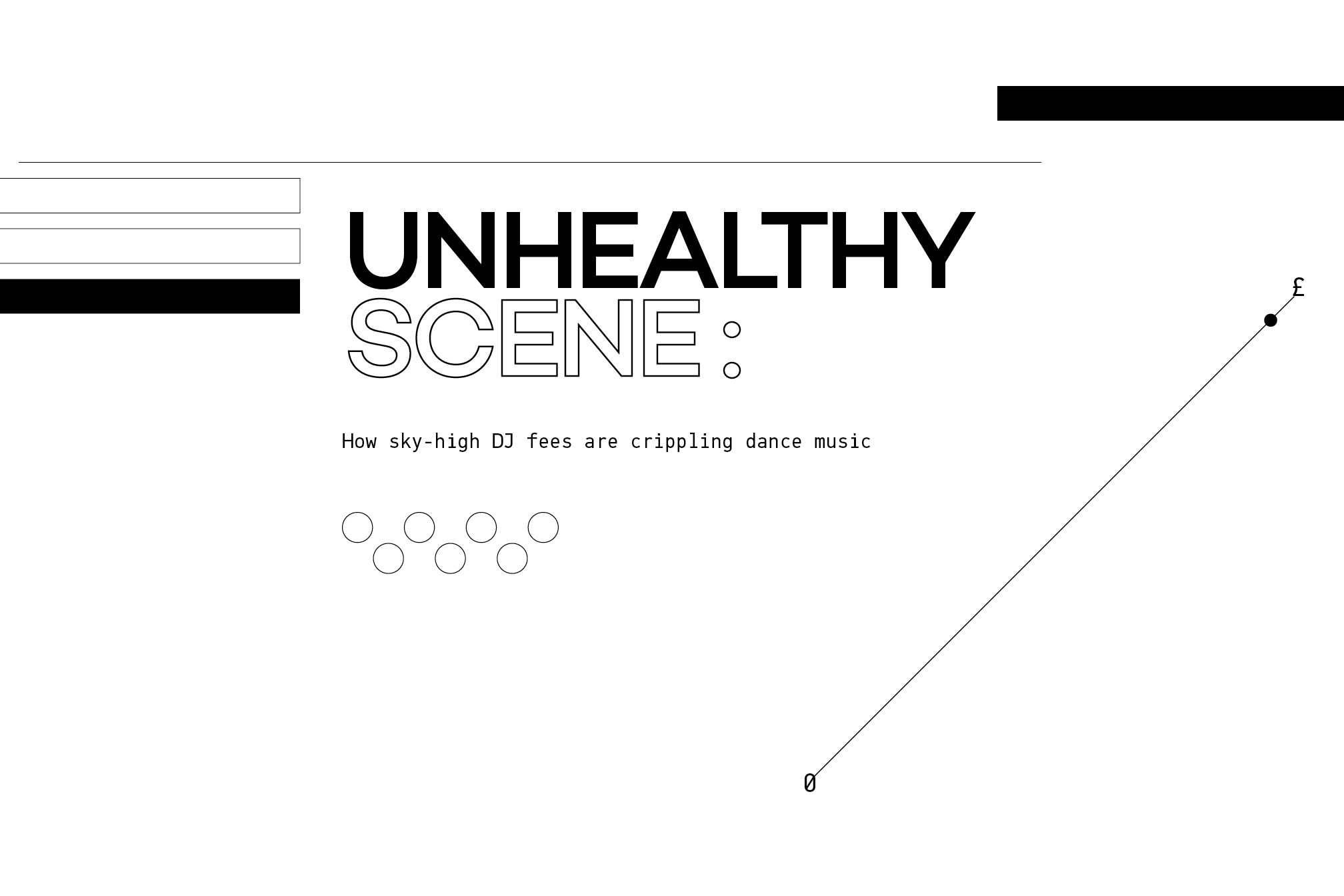 Features
Features
Unhealthy scene: How sky-high DJ fees are crippling dance music
If DJ fees remain out-of-control, many predict the clubbing bubble will burst
We’re facing a crisis in club culture. But this time our antagonist isn’t the government, the media, or greedy landlords. The reasons for this crisis are many — but without reining in out-of-control DJ fees, many predict the clubbing bubble will burst, potentially crushing all but the biggest DJs, events and promoters.
Almost everyone I spoke to agrees on what the problem is. But few agree on who’s to blame. Ben Rau, a DJ, producer and label owner from Berlin, highlights the top “one per cent” of DJs who are taking “a disproportionate share of the pie.” Others, like Dan Sumner of Pretty Pretty Good, think booking agents are often at fault. When so many agents are unwilling to negotiate on artist fees, independent promoters and smaller parties can struggle to break even. “I do love [promoting], but it's exhausting, stressful, and it's unsustainable for independent promoters to make money out of promoting with the way things are,” he says. After four years of events in cities like Bristol, Sheffield, Manchester, and Leeds, Sumner is ending his party this month. “The costs are too high to make it comfortable, but the biggest factor is the DJ fees,” he says.
Posthuman’s Josh Doherty, who runs a label and party called I Love Acid, faults “sponsored” festivals and promoters with deep pockets who are able to pay inflated fees. “Which increases it across the board — agents expect those fees as a result,” he says. Though Andy Blackett, fabric’s head of promotion, says he doesn’t want to point fingers at anyone. “We've all been complicit in this, where the scene's got to, and it's at a breaking point.”

A changing global landscape
A lot has changed in the past decade for dance music. The industry’s value has risen from $4 billion in 2012 (the earliest year on record) to over $7 billion in 2018, according to the IMS Business Report. Dance music is now the world’s third most popular genre, with an estimated 1.5 billion listeners worldwide. Brands are also getting in on the action, as DJs become merchandise ambassadors for big name companies, with global sales driven by dance music acts growing 30 per cent between 2014 and 2016. And the rise of cheap and convenient travel has allowed DJs to crisscross the globe in search of these new audiences and the paycheques that come with them. All this expansion, Rau believes, has given rise to the “middle-tier DJ,” which he says is a fairly new phenomenon. “The only people who traveled 10 or 15 years ago were the top artists,” he says.
Read this next: A trip through DJ booths: 1976 - 2016
There was a time when DJing was often seen a supplemental income stream — a way to make extra cash on top of running a record label or promoting a party. But the early-2000s EasyJet boom opened up global markets, giving way to higher fees. Suddenly many mid-tier artists, who traditionally play after the warm-up act and before the headliner, were also traveling every weekend — some making a comfortable living doing so. But slumping record sales and the loss of alternative income streams have put many mid-tier DJs in a precarious position. Either play as many gigs as possible, or consider other career options. But there’s a problem.

“Bookings are down,” Blackett says. And the number of nightclubs in Great Britain fell by 21 per cent in 2018, compared to a 1 per cent decline per year between 2013 and 2017. This is coupled with closures of clubs like Output in New York, Heart in Miami, and other spaces across Europe, including Rotterdam’s BAR, Paris’ Batofar and Concrete and Berlin’s Arena and Farbfernseher.
Read this next: Parisian collectives are building an underground scene outside of the clubs and city
Of course, most of these clubs closed for different reasons. But the reasons they’ve shuttered — rising rents and gentrification, competition with festivals, and social factors like wellness trends and online dating — are directly linked to the difficulties promoters face in paying ever-higher DJ fees. “Every ticket is getting harder to sell,” Blackett says. And even when a club is full, it might struggle to break even, which some artists and agents don’t seem to understand. “There are a lot of agents out there that are newer to the game who think their artist is worth more money each time,” Blackett says. “They would say, 'We sold out the venue.' Well, did you sell out the venue? Or did I sell out the venue? Because I can tell you that everyone's marketing budget is double what it was two years ago.”
Headline culture
In London, promoters like Blackett are also blaming oversaturation for the market downturn. “The whole thing's gotten boring,” Blackett says. “If you go back five years, there wasn't a lot of choice in London, which probably benefited fabric. Now there's Printworks, Tobacco Dock, Krankbrother, Croatia, Ibiza, a festival every weekend, and we're all using the same acts. It's oversaturated. There's nothing unique anymore.”
Ben Rau and Eric Cloutier fear middle tier artists are being squeezed out of existence, as promoters spend more and more on the headliner. Cloutier recently took on a part-time job to supplement his income and “fill in the gaps where the fizzling electronic music scene has left me adrift.” But in light of what Blackett describes as “headline culture,” he and other promoters feel cornered into booking highly popular acts. “Because headline culture is more than it was, we'll pay the headliner 80 per cent of the budget, then book local DJs,” he says. “But what's happening is the middle tier of DJ is disappearing. That doesn't create a healthy scene.” And without the middle tier, Blackett wonders where tomorrow’s headliners will come from.
Rachael Williams, booker for Peckham’s Rye Wax, blames the shift towards headline culture — the result of packing line-ups with high-paid headliners to lure larger crowds — on the economy. After a decade of austerity and rising costs of living, people need to stretch every penny they have. “The audience is looking for these stacked line-ups, because they perceive it to be value for money,” says Williams. Small promoters lose, while wealthier promoters who are able to provide that perceived value for money stay firmly at the top of the pile. “Which widens this gap and lessens accessibility,” Williams says. “So smaller promoters and poorer promoters or people of colour — people who don't have these big pockets can't break in.” Or they quit altogether.
As small and independent promoters and venues fold under financial pressure, cheap nightlife alternatives often disappear with them, leaving younger crowds with fewer places to experiment with new and unknown sounds. “We spoke to 25 year olds, asking how they spend their money,” Blackett says. “They said they'd rather go to a big show for £50 and have 10 or 12 names they knew, even if they only did 90 minute sets, than spend £25 with us or Village Underground to hear music they're not sure of. They might have an amazing time, but there's a chance they won't, so they'd rather have a perceived guaranteed good time. That's what we've got with this headline culture cycle, which is gonna be tough to break, because the costs of going out are that high.”
Read this next: Bulging line-ups risk killing the vibe on the dancefloor
There are a few reasons costs of going out are so high. But when a single top-tier DJ can count for 80 per cent of a club’s budget, that money has to come from somewhere. Drink prices are high enough at fabric, Blackett says, which means the headliner fee is often paid for on the door. “With the current DJ budget, we can't lower our ticket prices,” he says. Which puts fabric and other similar venues at a serious disadvantage. While a festival or 5,000 capacity club event might cost double or triple the ticket price of a small- to medium-capacity club, when purchased every few months, the costs seem smaller. With the competition struggling, the monopolisation of big events and the perpetuation of high fees continues — almost by design.

Exclusivity deals
Williams and Sumner say it would be easier for smaller promoters to secure big acts if embargo deals were lifted. Big venues can easily outbid smaller promoters. “But in exchange, artists sign exclusivity deals six months either side of the date, which effectively ties them in for the year,” Sumner says. Both he and Williams remain skeptical at the reasoning behind the embargo practice. After all, the type of club-goer who wants to see an international DJ at a 200 capacity venue is often very different to those who’d rather see them next to five or 10 other big names. “They're protecting their interests, but to the detriment of the scene, even when it's not necessary,” Sumner says. Williams says lifting embargos would create an opportunity for smaller promoters to save on flights and hotels. And since the artist and their agent still get the big fee from the big party, playing the smaller venue won’t hurt the bottom line.
Read this next: DJ exclusivity deals and domineering promoters are suffocating independent nightlife
In the meantime, dealing with agents who aren’t willing to compromise on fees remains the biggest challenge to promoters without deep pockets. “I just wish they'd be more understanding, but a lot of them aren't,” Williams says. “They want their fee, no matter what it is, and it's just not doable. It's making young kids broke, and a lot of promoters want to leave music. So it's a perpetuation of the situation where the middle is falling out in nightlife.”
Williams acknowledges that wanting the best fee for an artist does make an agent good at what they do. But the position they’re putting many smaller promoters in is “insane,” she says. “If you've got a hundred capacity venue, you're not going to be able to spend over a grand on an artist. You're not making any money. And this is a problem a lot of promoters are facing, where they're really happy when they break even — earning nothing for all the hard work they've put in. It's a bonkers situation.”
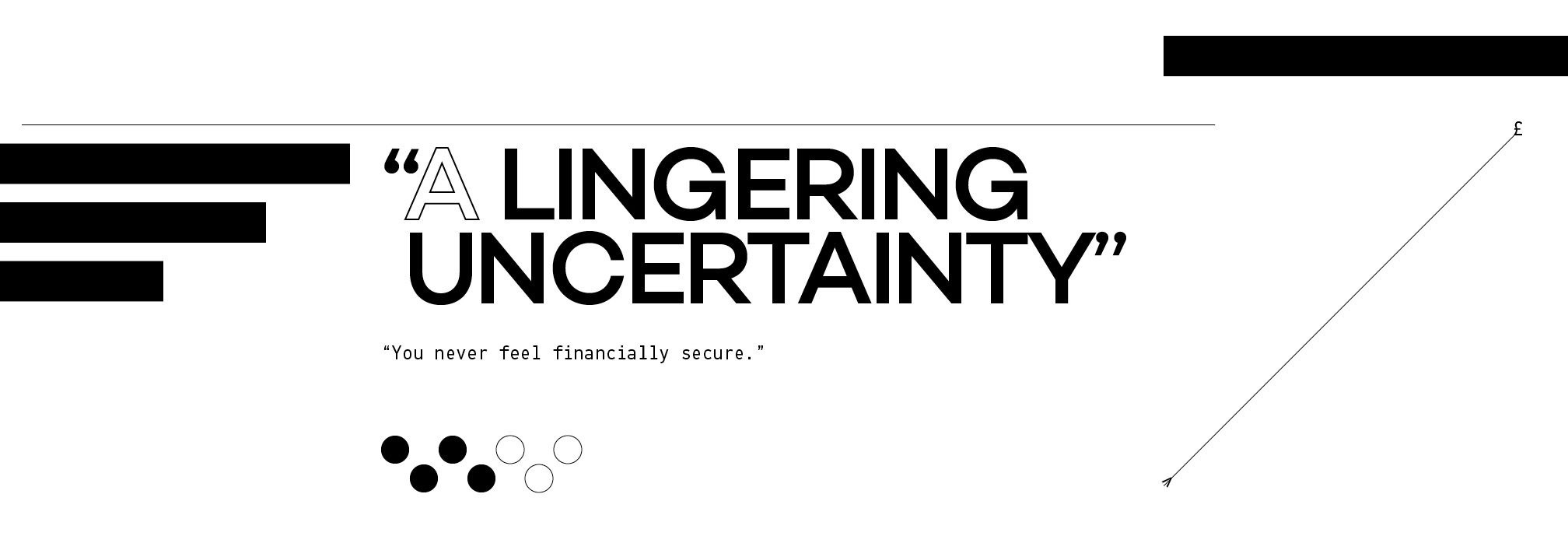
Business-minded mentality
Some agents do try to meet promoters halfway. Keira Sinclair, who co-founded POLY. Artists with Kim Oakley, says that if a promoter is unable to meet an artist’s usual fee, she asks them to help her understand why. “So, providing a detailed budget of their expected income and costs so we can try to get a deal that is fair for everyone involved,” she says. Though she qualifies that “fair” is a loaded term. “We're living in a capitalist society, so I think a lot of this isn't fair.” When deciding a fee, her and other POLY. agents consider factors like the economic situation in the city, and the type of party it is. “We try really hard to support radical and underground parties who are generally not doing this to make money, but maybe have a greater political purpose or some different intent,” Sinclair says.
Read this next: Politics and dance music are intertwined and there's nothing you can do about it
Sumner also thinks he’s been lucky because of the artists he’s worked with. “There is a very left-leaning political outlook among most, and they naturally tend to feel a level of responsibility to look after a scene that pays their wages,” he says. Even if rising artist fees have put him out of business, “it's a lot worse in other scenes,” he says, pointing toward “business techno” — a term coined by Shifted to describe the monotonous, big room sound that’s exploded in popularity. Though it’s also become a catch-all for artists who seem to prioritise money over music.
”Business techno is fully here now, and there seems to be no shame in these top-tier artists who are blowing up,” he says. “You can't really criticise them — if that's what they want to do, that's what their priorities are. We live in a capitalist structure, so it's hard to fault them for that. But it is a shame, and it is damaging the scene.”
Read this next: What the hell is Business Techno?
Sumner thinks this business-minded mentality has eroded the traditional sense of loyalty and trust between artist and promoter. When in the past a promoter took a risk on an unknown artist that later blew up, the promoter would be rewarded with affordable bookings down the road. Now, that’s not always the case, leaving small-time promoters less likely to take risks, and big promoters better able to book in-demand talent once their hype and cost reaches a certain point.
DJs and agents aren’t asking for more money out of malice. And often, not even greed drives a rise in prices. DJs need to put food on the table like everyone else. And many times, they only have three to five years to try and make something happen out of their careers. Why not make hay while the sun shines? There are no retirement packages in the arts, and artists feel like they need to plan for the end of their time in the spotlight. Being a DJ is also hard and tiring work, and it’s often much less lucrative and glamorous than it appears from the outside.
“From the people I know who are successful, they're in the studio Monday through Friday working on music, doing media, doing podcasts, figuring out what they're going to play, then traveling two or three days during the weekend, and they don't know how long their career is going to last as well,” Sinclair says. “So I do see why there's an urgency to do the best shows, to build their careers, and ultimately that relates into striving for higher fees.”
Ben Rau agrees. “As much as we’re very lucky to be earning a living doing something we love, the truth is, a typical weekend with three or four shows can be gruelling.” There’s also a lingering uncertainty that comes along with being a professional DJ. “You never quite feel safe in this job,” Rau says. “You never feel financially secure.” While those at the very top have little to worry about financially, the situation is drastically different for anyone trying to make it to that level.
Read this next: 8 DJs tell us how they stay sane on tour
This sense of insecurity creates a pressurised environment between agents, artists and artists’ teams, driving a determination for high fees. “The main source of income for most artists now is fees from bookings. Agents are under more pressure than ever to get those shows,” says one agent from a high profile booking agency who wishes to remain anonymous. “An artist or their manager might say, ‘I need more shows this month, I have a lot of bills to pay off’. We’re constantly given targets to hit. It's really hard if you've got someone saying to you that they don't have enough money to live.” Agents are also under pressure to push for the best possible deal for the artist they represent, or face losing them to someone who will. “There's a lot of poaching in this industry. There are no contracts between us and an artist,” she adds. Another anonymous agent makes the same point: “If you don't get what they believe they deserve, artists are within their right to get someone else to represent them who will. An agent's job is to make decisions that benefit their clients in the long run.”
And even if an artist makes what looks like an enviable amount on paper, what they take home might be considerably less. “Before the artist makes any money, the agent takes 15 per cent, and management will have taken 20 per cent — that's 35 per cent gone,” Ben Rau says. Then there’s “landed deals.” Landed deals lock an artist into absorbing the price of air travel into their fee. But because shows aren’t often booked at the same time, last minute flight purchases or changes in route often mean lost money. These have essentially become industry standard, as promoters find new ways of saving money, with more and more of it funnelled to the headliners. “Don’t get me wrong, headline DJs do deserve to be compensated for what they do because they are the main draw,” Rau says. “But when that comes at the expense of more diverse line-ups, we’re stifling creativity and preventing DJs from breaking through.”
To Eric Cloutier, the mentality he sees flourishing right now is disturbing. “If someone charges €45,000 for a two hour set, who actually wins?” he asks. Promoters are now basing costs around artist fees, often forgoing the other essentials — like quality sound — that make a party great.
Read this next: Hey promoters! Throw parties, not club nights
While Sinclair downplays the situation, arguing that “the best nights are the ones where line-up doesn't matter,” she also acknowledges that it’s “obviously a problem if promoters on the whole are not able to make creative decisions because they have to purely think about the financials.” So what’s to be done?
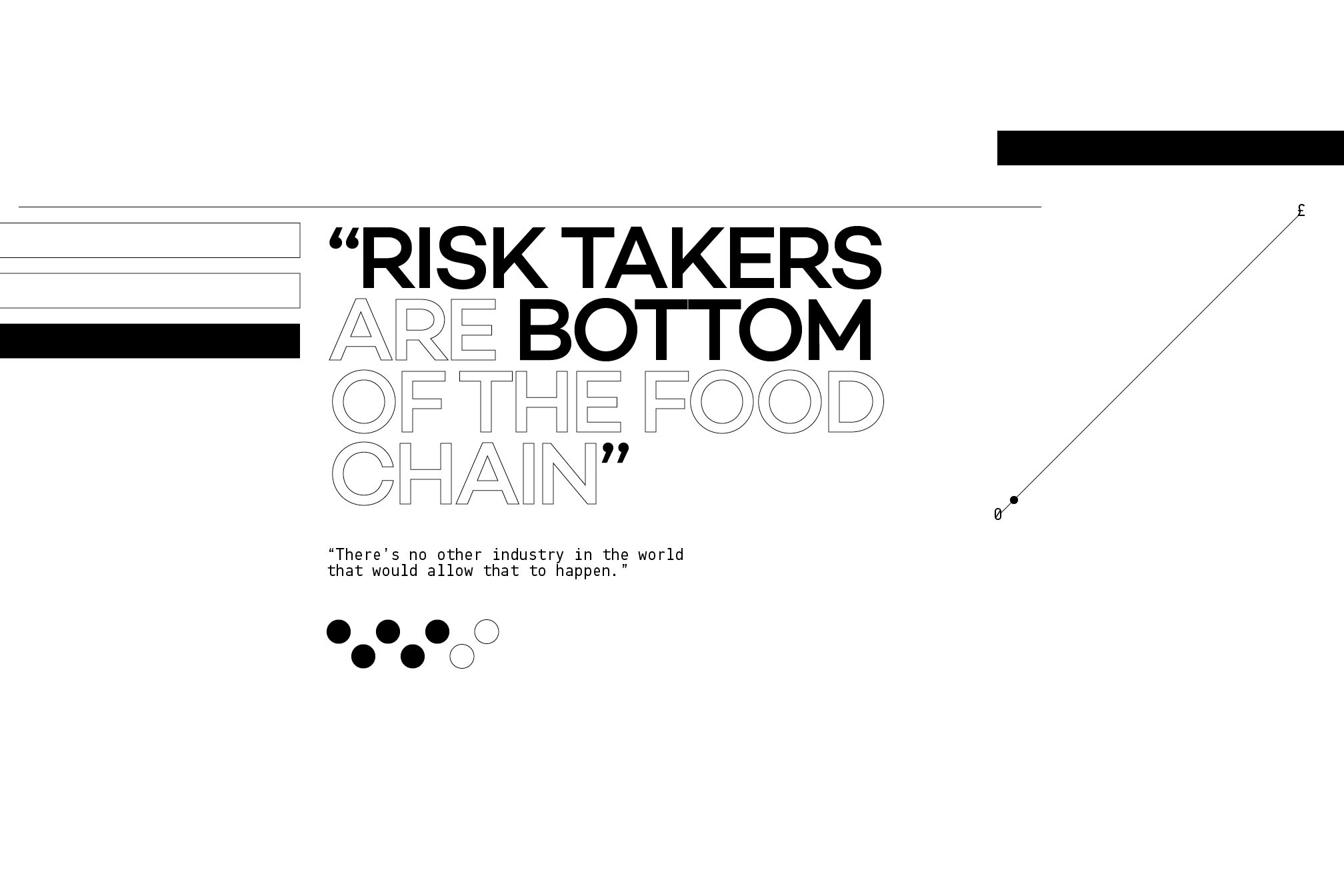
Sharing risks and rewards
Sliding scale pay is the most obvious and workable answer. While a “flat fee” can be useful in determining an artist's worth, agents need to be more flexible when working with promoters, allowing their artists to play at smaller venues for fairer fees. Artists should also take a more active role in determining their fee for each offer that comes their way. “I know for a fact that DJs don't know what's happening with their agents,” says Cloutier, who runs a small monthly party at Berlin’s Paloma Bar. “They find out I try to book them and they’ve never heard about it. Their agent shoots the offer down immediately.” But some DJs, he says, simply need to “get a grip.” “The numbers they're asking for aren't doing anyone any favours except for the people who are working for them. The agents and the managers are the ones making the most money now.”
One anonymous agent believes DJs are worth their fees. “If DJs are receiving exorbitant fees, in many cases this will be because they are drawing huge crowds, and therefore revenues, for the promoters they play for,” he says. But when parties underperform, there needs to also be a share of liability. “What other business do you know where the person who takes 100 per cent of the risk and puts 100 per cent of the money down to pay the agent, the manager and the artist, respectively, remains at the bottom of the food chain?” Blackett asks. “There's no other industry in the world that would allow that to happen.”
At fabric, Blackett’s solution has been to change the potential earning power of an artist depending on how many people show up. So if the artist’s flat rate is £7,000, fabric instead offers £4,000. If the place sells out, the artist gets £10,000. And if nobody shows up, the club saves £3,000 and the artist still walks away with a £4,000 payday. “Everyone can have a bad show,” Blackett says. “But what I'm hearing with a lot of promoters now is they'll pay somebody the £8,000 they wanted, lose a load of money, and never book the artist again. That's not healthy. If the artist took a share and help the promoter lower the risk, I'm sure more promoters would share in the reward when it came.” Admittedly, it can be tricky to quantify where the success comes from, especially in a multi-room venue like fabric. But that’s why honest communication is the single most important solution to this complex problem.
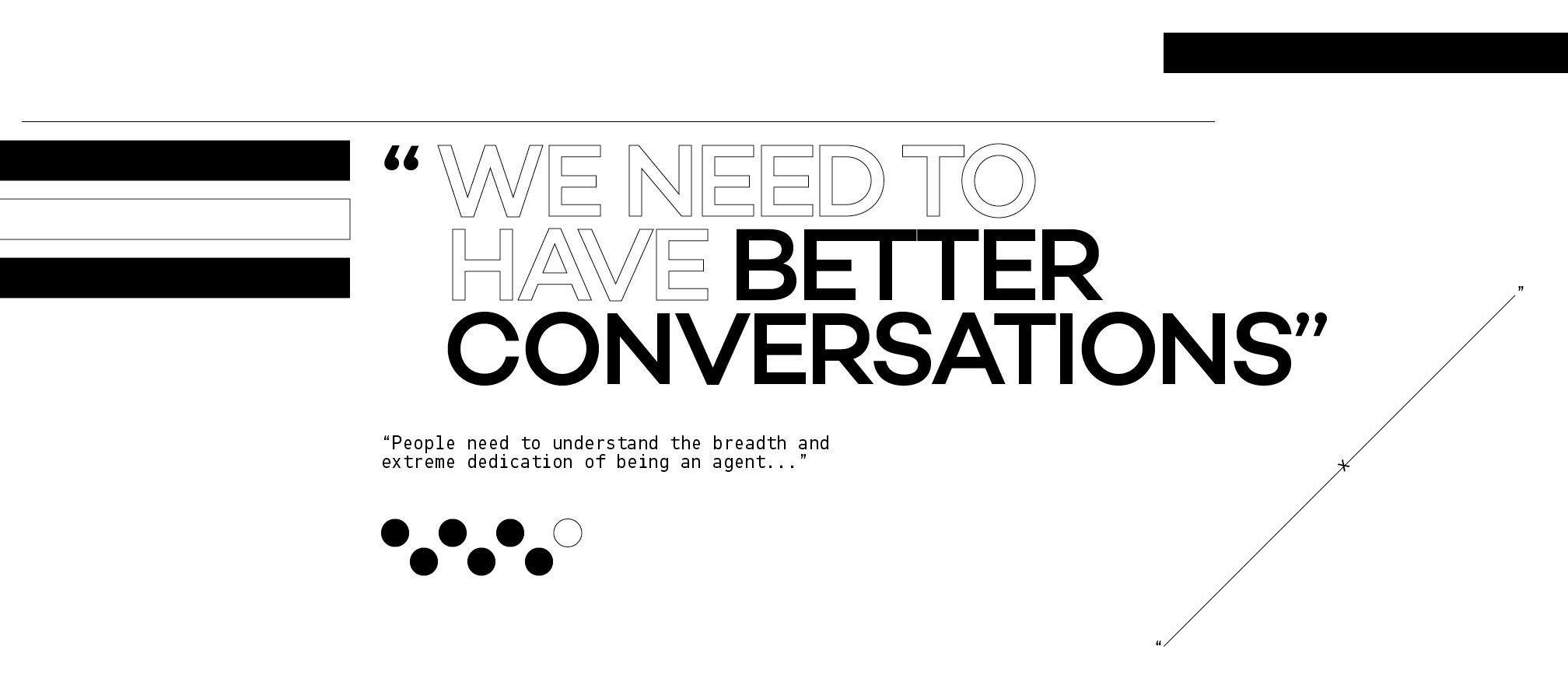
Open communication
Promoters need to talk to each other, Blackett says, and unite against agents who try to leverage them against each other for higher payments. Which is something he says is already happening in London. “We might be competing, but we're all telling each other what the bar spend was, how many tickets we sold, what the fees are, because we've all had enough of being played against each other.” They also need to talk honestly with agents, and admit when a show doesn’t sell out. “I think a lot of promoters have been too proud to admit their shows aren't selling out and they wouldn't tell the agent or manager,” Blackett says. Being forthright will make communication with an agent about an artist’s fee much easier next time they play.
But mostly, agents and promoters need to start talking to each other. “We need to have better conversations,” Sinclair says. “People need to understand the breadth and extreme dedication of being an agent, because promoters deal with agents and only talk about money. We talk to artists probably 5 per cent of the time about money. The other 95 per cent is really getting involved with their whole career, having such a close relationship with their life and what they want to achieve creatively.”
And the us versus them mentality between agents and promoters isn’t doing favours for anyone. “Agents and promoters are pitted against each other, which I find really sad,” Sinclair says. “Our primary relationship is with the artist because we speak to them all day, every day. But promoters are the other essential part of that triangle, and it feels like it's agents versus promoters, as if we're out to get each other.”
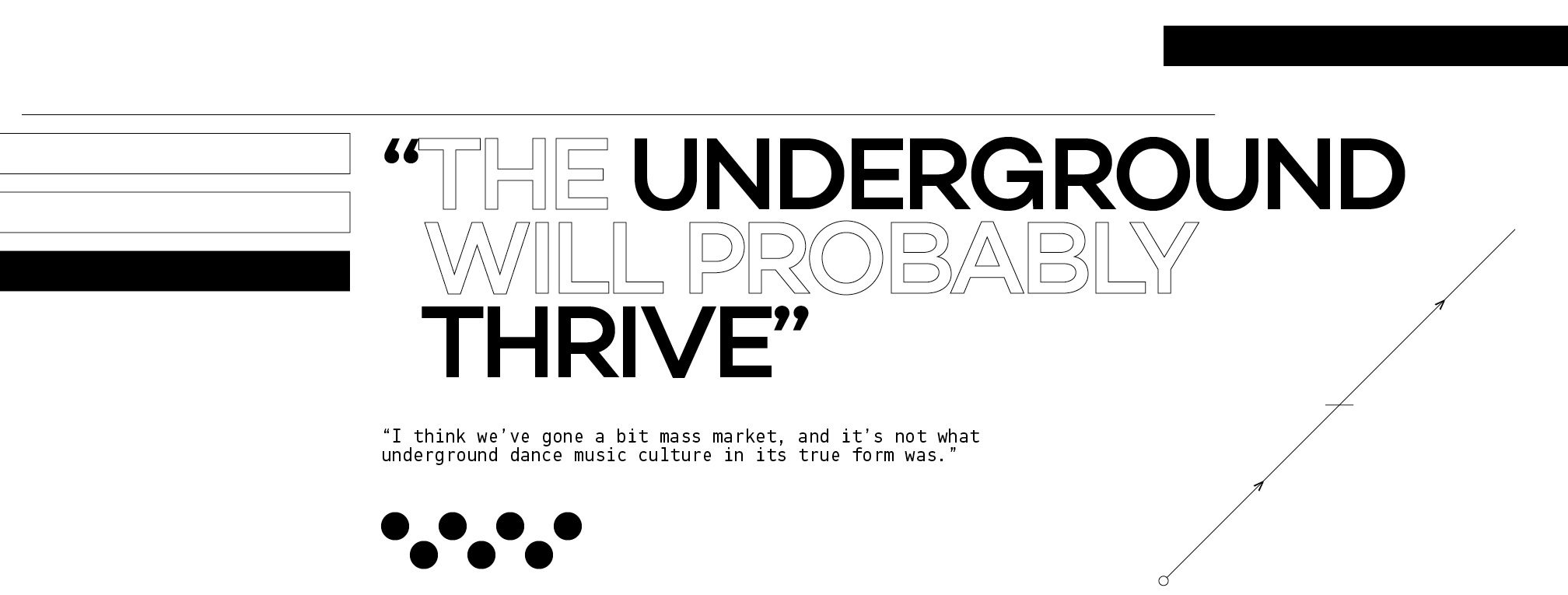
Curtailing commodification
What’s clear is that without a change to the status quo, we’re likely in for very hard times. Blackett predicts a “total collapse.” And Sumner agrees. “Obviously dance music is commodified now, it's big money business and there is a demand for it, so I get why it's grown so fast. But it's out of control. And if things continue, the bubble's gonna burst. More and more small clubs will close. More small promoters will have to stop what they’re doing, and the landscape will look very different.”
Read this next: The police are losing the war against London's illegal rave scene
Without clubs, agents and their artists will be forced to lower their fees drastically anyway, as a major revenue source dries up and heads back into the underground. “The underground will probably thrive,” Blackett says. “I think we've gone a bit mass market, and it's not what underground dance music culture in its true form was.”
A return to the underground roots of dance music might sound appealing to some. But the damage inflicted to the electronic music ecosystem by inflated artist fees, unnecessary and exploitative embargoes, and headline culture could take years to recover from. Without considering the effects our actions have on the wider community, and communicating more honestly with each other about what works best for everyone, the increasingly unequal system will continue to favour a few at the top to the detriment of almost everyone else. “One of the sad things is, we rely on small parties and local scenes for DJs with real talent to actually get noticed,” Sumner says. “As we move towards big festivals and massive line-ups and superclubs, the ‘machine’ becomes far more reliant on social media and PR teams, so the commodification is only going to accelerate more and more. And you won't get those really nice stories of DJs coming out of special places.”
Chandler Shortlidge is a freelance journalist, follow him on Twitter and check out his website
Read this next: Get the best of Mixmag direct to your Facebook DMs


